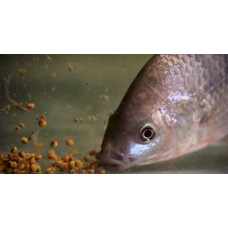The biomass of organic matter produced by experiments per unit area per unit time. Secondary production forms the organisms on which fish feed.
In the world's oceans, bacteria, fungi, zooplankton, zoobenthos and fish are the most important secondary producers. Secondary production is defined as the rate at which new biomass is formed by heterotrophic organisms. The value of secondary products is usually expressed in units of dry or raw weight, calories or the amount of proteins, fats and carbohydrates produced. Secondary products may be gross or pure.
Gross production refers to the total amount of organic matter produced by organisms, equal to their growth and the cost of all living expenses.
Net production is the increase in organic matter in organisms.
Secondary products
Tags: Secondary products

